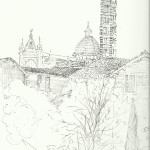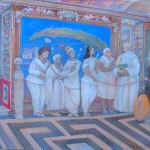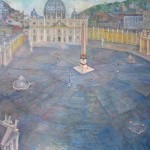 As you know, whatsmartwomenread.com focuses on high-quality literary fiction. However, most good readers sprinkle in a bit of non-fiction for balance. Finding the best selections can sometimes be a challenge, but a recent 60 Minutes interview with Bill Gates provided a great source.
As you know, whatsmartwomenread.com focuses on high-quality literary fiction. However, most good readers sprinkle in a bit of non-fiction for balance. Finding the best selections can sometimes be a challenge, but a recent 60 Minutes interview with Bill Gates provided a great source.
It turns out that Gates is a voracious reader–in fact, he keeps a canvas bag (the size for carrying firewood) filled with the books he wants to read. And, he blogs about them.
His site, www.thegatesnotes.com/Books is incredible. Of course it is well-done and easy to navigate, but more importantly, it is a treasure trove of non-fiction along with Gates’ comments about his reading.
The titles are fascinating: Behind the Beautiful Forevers by Katherine Boo (which is a whatsmartwomenread.com selection); Mountains Beyond Mountains by Tracy Kidder (we highly recommend this amazing biography of Paul Farmer); The Emperor of all Maladies: A Biography of Cancer by Siddhartha Mukherjee; Â and dozens more.
Here are what he calls his “Ten Books that Made Me Think.”
- The Better Angels of our Nature: Why Violence has Declined by Steven Pinker
- Deng Xiaoping by Ezra Vogel
- The Quest by Daniel Yergin
- Moonwalking with Einstein by Joshua Foer
- Behind the Beautiful Forevers by Katherine Boo
- One Billion Hungry: Can We Feed the World? by Gordon Conway
- A World-Class Education by Vivien Stewart
- Academically Adrift by Richard Arum & Joshipa Roksa
- This Time is Different: Eight Centuries of Financial Folly by Carmen Reinhart & Kenneth Rogoff
- The City that Became Safe: New York’s Lessons for Urban Crime and Its Control by Franklin Zimring
It’s really unbelievable that a man that is in the process of eradicating childhood diseases around the world has time to read the newspaper let alone piles of books. But part of intellectual growth depends on staying current. That’s the inherent value of non-fiction and why we are not only directing you to www.thegatesnotes.com but also offering a few non-fiction suggestions of our own. For summer reading, you might consider:
- A History of Reading by Alberto Manguel
- On Writing by Stephen King
- The Writing Life by Annie Dillard
- Great Books by David Denby
- The Botany of Desire by Michael Pollan
- To Repair the World by Paul Farmer


![ARAPACISacanthuswithswans[1] A drawing of an ornate design on paper.](https://whatsmartwomenread.com/wp-content/uploads/2013/03/ARAPACISacanthuswithswans1-150x150.jpg)